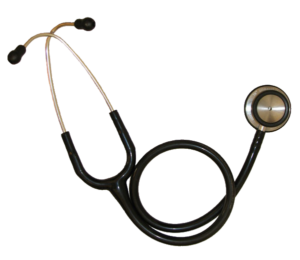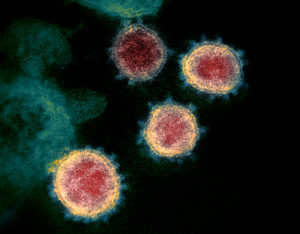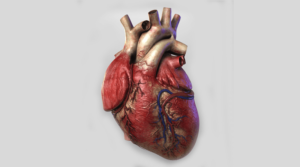 The number of people who have Crohn's disease has been rising steadily over the years. Crohn's disease is a debilitating intestinal bowel disease (IBD) which causes severe abdominal pain, diarrhea, weight loss, and fatigue. A number of studies have focused on gut bacteria in those with Crohn's disease and found dysbiosis (microbial community out of whack), but there is disagreement over the cause of Crohn's and the dysbiosis.
The number of people who have Crohn's disease has been rising steadily over the years. Crohn's disease is a debilitating intestinal bowel disease (IBD) which causes severe abdominal pain, diarrhea, weight loss, and fatigue. A number of studies have focused on gut bacteria in those with Crohn's disease and found dysbiosis (microbial community out of whack), but there is disagreement over the cause of Crohn's and the dysbiosis.
Up to this point no treatments (drugs, surgery, diet, etc.) have had long-term success, and so patients have to take medications throughout life. This is why a small study (10 patients) finding long-term remissions (3 to 23 years) with medicines no longer required is exciting.
According to the Australian researchers success was achieved by having the individuals take a variety of antibiotics over a long period (about 3 years!), and for some also a fecal microbiota transplant (FMT) in the form of a "crap" or "poop" pill (freeze-dried donor fecal microbiota).
The researchers felt that Crohn's disease is caused by an infection, perhaps Mycobacterium avium subsp. paratuberculosis (MAP), and they chose courses of various antibiotics that they thought would work against MAP.
Symptoms of Crohn's disease totally cleared up, intestines (including fistulas) healed, and patients discontinued all medications and treatments. The authors called it a "prolonged remission" in the study. But they did point out that this group was special, and that others treated that same way also achieved remission, but were unable to totally go off all medications.
So we'll see. It needs to be duplicated in more people first.
Excerpts from Medical Xpress: Study: Antibiotic and 'crapsule' therapy eliminate need for further treatment of Crohn's disease
The Centre for Digestive Disease (CDD) headed by Professor Thomas Borody has cured Crohn's disease as reported today by Dr. Gaurav Agrawal in Gut Pathogens. ...continue reading "Successful Treatment for Crohn’s Disease?"

 The Scandinavians really love to drink coffee, and of course researchers study the health effects of all that coffee drinking. Two recent studies both found health benefits from drinking filtered coffee (such as drip coffee), but not unfiltered coffee.
The Scandinavians really love to drink coffee, and of course researchers study the health effects of all that coffee drinking. Two recent studies both found health benefits from drinking filtered coffee (such as drip coffee), but not unfiltered coffee. The possibility that rising carbon dioxide levels could eventually result in harmful effects on people's thinking (cognition) is scary. Currently levels are above 400 ppm and rising steadily each year. The Intergovernmental Panel on Climate Change predicts that outdoor CO2 levels could climb to 930 ppm by 2100, which means urban and indoor levels would be even higher.
The possibility that rising carbon dioxide levels could eventually result in harmful effects on people's thinking (cognition) is scary. Currently levels are above 400 ppm and rising steadily each year. The Intergovernmental Panel on Climate Change predicts that outdoor CO2 levels could climb to 930 ppm by 2100, which means urban and indoor levels would be even higher. Today is the fiftieth anniversary of Earth Day!
Today is the fiftieth anniversary of Earth Day!
 Peanut allergies can be life-altering and life-threatening. But in the past year there have been welcome developments in both preventing peanut allergies and in treatment of peanut allergies in children.
Peanut allergies can be life-altering and life-threatening. But in the past year there have been welcome developments in both preventing peanut allergies and in treatment of peanut allergies in children. Two big risk factors are emerging over who will develop severe COVID-19 infections that lead to hospitalizations and needing intensive care. A number of studies throughout the world are reporting that the main risk factor in persons under 60 years is being significantly overweight, especially obesity, and the other risk factor is being over 65 years of age.
Two big risk factors are emerging over who will develop severe COVID-19 infections that lead to hospitalizations and needing intensive care. A number of studies throughout the world are reporting that the main risk factor in persons under 60 years is being significantly overweight, especially obesity, and the other risk factor is being over 65 years of age. Infected with COVID-19 during pregnancy and worried about the pregnancy and baby? A national registry has just been established that is tracking the effects of coronavirus COVID-19 on the pregnancy and on newborns. This is because the virus is so new that we don't know what, if any, effects it has on pregnancy and on the baby. Does it harm the developing baby during the first 2 trimesters or cause problems during pregnancy? We just don't know.
Infected with COVID-19 during pregnancy and worried about the pregnancy and baby? A national registry has just been established that is tracking the effects of coronavirus COVID-19 on the pregnancy and on newborns. This is because the virus is so new that we don't know what, if any, effects it has on pregnancy and on the baby. Does it harm the developing baby during the first 2 trimesters or cause problems during pregnancy? We just don't know. There has been a debate for years over whether surgery plus traditional medical therapy (medications + lifestyle changes) is better than just medications and lifestyle changes for treating blocked arteries (ischemia) and preventing heart attacks and death. A recent study looked at this issue and found that there is no advantage to initially doing invasive procedures such as bypass surgery and stents for stable heart disease and moderately and severely blocked arteries. The surgical approach did not reduce the number of heart attacks and deaths. Sooo... it looks like medications and lifestyle changes alone may be the way to start treatment.
There has been a debate for years over whether surgery plus traditional medical therapy (medications + lifestyle changes) is better than just medications and lifestyle changes for treating blocked arteries (ischemia) and preventing heart attacks and death. A recent study looked at this issue and found that there is no advantage to initially doing invasive procedures such as bypass surgery and stents for stable heart disease and moderately and severely blocked arteries. The surgical approach did not reduce the number of heart attacks and deaths. Sooo... it looks like medications and lifestyle changes alone may be the way to start treatment.
